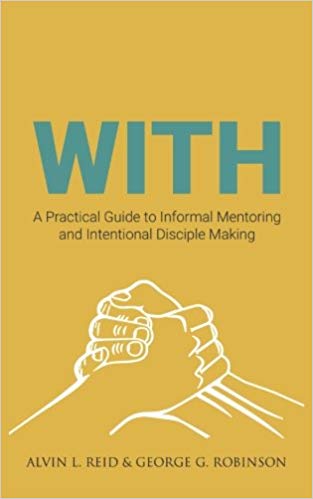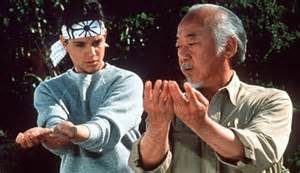
Chances are you don’t know who Ninja is. Perhaps when you think of Ninja, you think of the old video game Ninja Gaiden or the Mighty Morphin Power Ranger ninjas. Or perhaps you think of the Teenage Mutant Ninja Turtles or the Karate Kid. Working with teenagers, the classic youth group game “Ninja” might come to mind. But Ninja is none of these.
Chances are your students know who Ninja is. When professional golfer Tiger Woods won a golf tournament this past Sunday for the first time in five years, a mob of people followed Tiger up the fairway. All followers had their arm up in the air and held their phone sky high in hand so they could take a photo of the historic moment. I bring up Tiger’s name because Ninja has a crowd just as big following him. The difference is Ninja’s crowd is mostly online.
Ninja is a pale, gangly young man with neon pink hair that students are going googoo-gaga over. Ninja is a far cry from Elvis. From a social media perspective, Ninja is bigger than soccer stars Ronaldo or Neymar. Ninja has 11 million, yes 11 million (and climbing), Twitch followers. Havn’t heard of Twitch either?
Twitch is a livestreaming video platform produced by Amazon. Of course, there are multiple platforms in today’s world. In just two days, Ninja garnered 5.2 million Instagram views. Ninja has 3.2 million Twitter followers at the moment. Ninja has endorsements from Samsung, Red Bull, Uber Eats, and You Tube. It is estimated Ninja makes $500,000 a month. Ninja lives in a gated community outside of Chicago alongside other Chicago Bears football players.
Ready to know who this masked man is? Ninja’s real name is Tyler Blevins and he is 27 years old. Tyler is married to his manager Jess and together, they own two Yorkshire terriers in their million-dollar home. In reality, Tyler lives in his basement. He sits in front of a couple of screens wearing a t-shirt and plaid pajama pants playing and streaming games all day. Ninja is a professional e-gamer.
The gig is harder than it sounds as Tyler is interactive, talking with others all the while he plays. Tyler spends about thirty minutes with his wife in the morning before streaming for six hours while she takes his business calls. Tyler and Jess take a break around 4 pm and then Tyler streams another six hours beginning at 8 pm. Tyler says his job is both physically and mentally exhausting and that he has only had one vacation in the past eight years. When the rich and famous Ninja does leave the house, he is mobbed and can’t do normal things like go to the mall, the movies, or out to eat. Would you expect anything different from a guy who plays Fortnite with Drake?
I have a two-fold purpose in writing this post. Many of our students really believe they are the next Ninja and that they are going to enjoy this lifestyle. Gaming is not only a dream students have. Gaming is a job they think they can have and make a living off of. We need to temper our student’s expectations a bit and ground students into a better reality. However, I wouldn’t shatter students’ dreams. I would just let students know the cream rises to the top and that it is very unlikely they will be the one. I would compare it to aspirations students entertain when they think they will be the next professional athlete. There is only one Tiger and there is only one Ninja. Even these names carry the notion that the feats these people are pulling off in their chosen fields are inconceivable for the average person.
Secondly, there is a life lesson students can learn from observing Ninja. Ninja is a tireless worker, a grinder. He has plays the popular app Fortnite twelve hours a day and has played 2,738 hours in 11 months (that’s 114 full days). He has streamed 8,203 total hours since 2015 (that’s 342 days). Ninja has been a professional gamer for the last seven years and went to his first gaming tournament eleven years ago.
When Ninja was asked how long he is going to keep playing, Ninja responds, “Until my family is taken care of. Say this ends tomorrow, we don’t have enough for the rest of our lives. I tell Jess, ‘Honey we’re not going to have that much quality time this year, or even next year. But if we do this right and I continue to grind for a couple more years, we can set ourselves up, and our family and our family’s family, for the rest of our lives.”
I love this response. I think God has blessed Ninja’s work ethic and Ninja’s love of family. I like and respect Ninja’s generational outlook on life, especially in relation to providing for his family. God often speaks of blessing the third and fourth generations. We should advocate for our students to hold the same values. We just need to remind them that the pro gaming (or pro golfing) lifestyle is a fantasy for most.
*Much of the content of this post comes from ESPN the magazine’s article: “The Legend of Ninja: Biggest Gamer in the World” by Elaine Teng.





 Life seems to be made up of dreamers and of realists. Many a dreamer has had the thought of becoming a millionaire but instead lived their life in debt. Many a realist has concluded they will never become a millionaire and thus wasted assets that might have led them to be just that. There is a middle ground. There are more options in life than becoming either a dreamer or a realist. Though it is important to dream, it is also important to be realistic about your dream.
Life seems to be made up of dreamers and of realists. Many a dreamer has had the thought of becoming a millionaire but instead lived their life in debt. Many a realist has concluded they will never become a millionaire and thus wasted assets that might have led them to be just that. There is a middle ground. There are more options in life than becoming either a dreamer or a realist. Though it is important to dream, it is also important to be realistic about your dream.